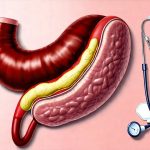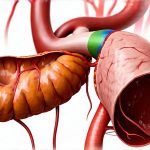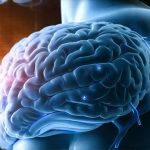Gastroesophageal reflux disease (GERD) and high blood pressure, or hypertension, are both incredibly common conditions affecting millions worldwide. Often treated as separate entities, emerging research suggests there might be a more complex relationship between the two than previously understood. Many people experience both GERD and hypertension simultaneously, prompting questions about whether one can influence the other, or if they share underlying contributing factors. Understanding this potential link is crucial for holistic health management and could lead to more effective treatment strategies. Ignoring either condition can significantly impact long-term well-being, increasing the risk of serious cardiovascular complications and diminishing overall quality of life.
The interplay between GERD and hypertension isn’t straightforward; it’s not necessarily a case of one directly causing the other in every instance. However, mounting evidence points to several mechanisms through which they can be interconnected. These range from shared lifestyle factors – such as diet and stress – to physiological responses triggered by frequent acid reflux events. It is important to remember that correlation doesn’t equal causation; just because two conditions occur together doesn’t automatically mean one causes the other. However, recognizing these potential connections allows for a more comprehensive approach to preventative healthcare and personalized treatment plans tailored to address both concerns simultaneously. This article will explore the current understanding of this complex relationship, highlighting possible pathways and offering insights into managing both GERD and high blood pressure effectively.
The Potential Mechanisms Linking GERD and Hypertension
The connection between GERD and hypertension isn’t easily explained, but several theories attempt to illuminate the potential mechanisms at play. One prominent idea centers around the role of inflammation. Chronic inflammation is a known contributor to both conditions. Frequent acid exposure from GERD can irritate the esophagus and trigger an inflammatory response in the body. This systemic inflammation has been linked to endothelial dysfunction – damage to the lining of blood vessels – which is a key factor in the development of hypertension. Furthermore, the act of repeated vomiting associated with severe GERD can lead to electrolyte imbalances and dehydration, further stressing the cardiovascular system.
Another proposed mechanism involves the autonomic nervous system. GERD episodes often trigger vagal nerve stimulation, influencing heart rate variability and potentially leading to fluctuations in blood pressure. The vagus nerve plays a critical role in regulating numerous bodily functions, including digestion and heart rhythm. Disruptions in vagal tone due to chronic reflux could contribute to blood pressure instability. Finally, medications used to manage GERD – particularly proton pump inhibitors (PPIs) – have been implicated in some studies as potentially affecting nitric oxide production. Nitric oxide is vital for vasodilation (widening of blood vessels), and reduced levels can lead to increased blood pressure. It’s crucial to note that the research on PPIs and hypertension remains controversial, with findings varying across different studies. Understanding how gut brain connection might affect this interaction could prove useful in future treatments.
It’s also important to consider shared risk factors. Lifestyle choices like a diet high in processed foods, obesity, smoking, and chronic stress contribute to both GERD and hypertension. These factors create a vicious cycle where one condition can exacerbate the other. For example, stress can worsen GERD symptoms, while simultaneously raising blood pressure. Addressing these underlying lifestyle factors is therefore essential for managing both conditions effectively. It’s also worth considering whether constipation could play a role in exacerbating these issues.
Lifestyle Factors & Management Strategies
Given the shared risk factors involved, adopting healthy lifestyle habits is paramount for mitigating both GERD and hypertension. A cornerstone of this approach involves dietary modifications. Reducing intake of acidic foods (citrus fruits, tomatoes), fatty foods, caffeine, alcohol, and carbonated beverages can help minimize GERD symptoms. Simultaneously, embracing a diet rich in fruits, vegetables, whole grains, and lean proteins supports cardiovascular health and helps lower blood pressure. The DASH diet (Dietary Approaches to Stop Hypertension) is particularly well-suited for managing hypertension and often complements strategies for GERD management.
Maintaining a healthy weight is also critical. Obesity significantly increases the risk of both conditions. Losing even a small amount of weight can have a substantial impact on blood pressure and reduce the frequency and severity of GERD symptoms. Regular exercise plays a vital role, not only in weight management but also in reducing stress, improving circulation, and lowering blood pressure naturally. Aim for at least 30 minutes of moderate-intensity exercise most days of the week. Finally, stress management techniques – such as yoga, meditation, or deep breathing exercises – can help reduce both GERD flare-ups and hypertensive episodes. Exploring how gut health and anxiety are linked could offer further support in managing these lifestyle factors.
Beyond these core lifestyle changes, it’s important to proactively manage any underlying conditions that might contribute to either GERD or hypertension. This includes addressing sleep apnea (a common comorbidity), managing diabetes effectively, and quitting smoking. Working closely with a healthcare professional is essential for developing a personalized management plan tailored to individual needs and circumstances.
Understanding the Role of Medications
Medications play an important role in managing both GERD and hypertension, but it’s crucial to be aware of potential interactions and side effects. For GERD, proton pump inhibitors (PPIs) are frequently prescribed to reduce stomach acid production. As mentioned earlier, some studies have raised concerns about a possible link between long-term PPI use and increased blood pressure. While the evidence isn’t conclusive, it’s important for patients on PPIs to monitor their blood pressure regularly and discuss any concerns with their doctor. Alternative medications like H2 receptor antagonists might be considered in some cases.
For hypertension, various classes of drugs are available, including diuretics, ACE inhibitors, angiotensin II receptor blockers (ARBs), beta-blockers, and calcium channel blockers. The choice of medication depends on the individual’s specific health profile and other medical conditions. It is vital to take all medications as prescribed by your doctor and to report any side effects immediately. Some blood pressure medications can potentially worsen GERD symptoms in certain individuals, so open communication with your healthcare provider is essential for adjusting treatment plans accordingly. Never stop taking a medication without consulting your physician first.
It’s also important to remember that medications are just one piece of the puzzle. Lifestyle modifications remain foundational to long-term management of both conditions and can often reduce the reliance on medication over time. The goal should be to work collaboratively with your healthcare team to find the most effective and balanced treatment approach. When considering dietary changes, it’s also worth exploring if coconut might be a trigger for some individuals.
Monitoring & Early Detection
Regular health checkups are essential for early detection and ongoing monitoring of both GERD and hypertension. Blood pressure should be checked routinely, even if you don’t have any symptoms. Home blood pressure monitoring can provide valuable insights into your typical readings and help identify trends that might warrant attention. For GERD, pay attention to warning signs such as persistent heartburn, regurgitation, difficulty swallowing, or chest pain. If these symptoms are frequent or severe, consult a doctor promptly.
Endoscopic evaluation may be recommended if GERD symptoms are particularly concerning or don’t respond to initial treatment. This procedure allows for visualization of the esophagus and stomach to assess any damage caused by acid reflux. In addition to monitoring blood pressure and GERD symptoms, it’s important to track other cardiovascular risk factors such as cholesterol levels, family history of heart disease, and smoking status.
Early detection is key to preventing complications associated with both conditions. Uncontrolled hypertension can lead to stroke, heart attack, kidney failure, and vision loss. Untreated GERD can result in esophageal strictures, Barrett’s esophagus (a precancerous condition), or esophageal cancer. Proactive monitoring and timely intervention are crucial for protecting your long-term health. Understanding if there is a test for leaky gut syndrome may also assist with preventative care.
Seeking Professional Guidance
Navigating the complexities of GERD and hypertension requires professional guidance from a healthcare team. This may include your primary care physician, a gastroenterologist (for GERD management), and a cardiologist (for hypertension management). Don’t hesitate to seek expert advice if you are experiencing symptoms of either condition or have concerns about their potential connection. A comprehensive evaluation can help determine the underlying causes of your symptoms and guide treatment decisions.
Be prepared to discuss your medical history, lifestyle habits, medications, and any relevant family history with your healthcare provider. Open communication is essential for building a strong doctor-patient relationship and ensuring that you receive personalized care tailored to your specific needs. Remember that self-treating can be dangerous; always consult a qualified healthcare professional before making any changes to your treatment plan or starting new medications. Taking an active role in your health management, coupled with the support of a skilled medical team, is the best approach for achieving optimal well-being. It’s also helpful to understand if alcohol may be a contributing factor to digestive issues. Finally, it’s worth considering is constipation a sign of food intolerance as part of a broader evaluation.


















